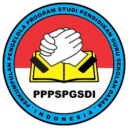Implementasi Pembelajaran Bahasa Inggris Berbasis Tematik Terpadu Bagi Siswa Sekolah Dasar
DOI:
https://doi.org/10.35568/naturalistic.v6i1.1628Keywords:
English Learning, Integrated Thematic, Elementary SchoolAbstract
This study aims to determine how integrated thematic-based English learning is for elementary school students. The method used is a qualitative research method with descriptive analysis techniques with library research by examining the implementation of integrated thematic-based English learning for elementary school students. Data collection is done by reducing documents in the form of reports, news and research articles both nationally and internationally related to the topic of this research article. The results showed that the integration between student experience and previous knowledge possessed by children with English learning presented in a theme, will help children to gain knowledge, skills, and attitudes holistically. The theme developed is of course taking into account the children's knowledge, interests, and environment. Each skill in English is also not taught separately but is learned in an integrated manner with other skills. Therefore, the concept of learning English as a foreign language in accordance with the concept of an integrated thematic approach will be able to provide the value of knowledge, skills, and attitudes as a whole whose process is in line with the characteristics of children at the elementary school level.
Downloads
References
Cameron, Lynne. 2001. Teaching English to Young Learners. USA: Cambridge University Press.
Dardjowidjojo, Soenjono. 2005. Psikolinguistik: Pengantar Pemahaman Bahasa Manusia. Jakarta: Yayasan Obor Indonesia.
Ethnologue.com. https://www.ethnologue.com/guides/most-spoken-languages
Faridatuunisa, Ichda. 2020. Kebijakan dan Pelaksanaan pembelajaran Bahasa Inggris untuk SD di Indonesia. Prosiding Seminar Nasional: Implementasi Merdeka Belajar berdasarkan Ajaran Taman Siswa, Vol.1 no.1, Hal. 194
Hidayah, N. (2015). Pembelajaran Tematik Integratif di Sekolah Dasar. TERAMPIL Pendidikan Dan Pembelajaran Dasar, 2, 33–49.
Juanda, A. (2019). Pembelajaran Kurikulum Tematik Terpadu. In Teori dan praktik Pembelajara Tematik Terpadu Beroientasi Landasan Filosofis, Psikologis dan Pedagogis.
Mukhlis, M. (2012). Pembelajaran Tematik PEMBELAJARAN TEMATIK Mohamad Muklis STAIN Samarinda. Fenomena, IV(20), 63–76. https://doi.org/10.1002/pro.215
Nurfitriani, Meiliana dkk. 2020. Pengantar Pendidikan dan Pembelajaran di Sekolah Dasar. Tasikmalaya: Edu Publisher.
Richard, Jack C & Renandya, Willy A. 2002. Methodology in Language Teaching: An Anthology of Current Practice. USA: Cambridge University Press.
Rusman. 2015. Pembelajaran Tematik Terpadu: Teori Praktik dan Penilaian. Jakarta: Rajawali Pers.
Sari, N. A., Akbar, S., & Yuniastuti. (2018). Penerapan pembelajaran tematik terpadu di sekolah dasar. Journal.Um.Ac.Id, 3(12), 1572–1582. http://journal.um.ac.id/index.php/jptpp/article/view/11796
Scott, W.A., & Ytreberg, L.H,. 2003.Teaching English to Children. New York: Longman
Syaifuddin, M. (2017). Implementasi Pembelajaran Tematik di Kelas 2 SD Negeri Demangan Yogyakarta. Tadris: Jurnal Keguruan Dan Ilmu Tarbiyah, 2(2), 139. https://doi.org/10.24042/tadris.v2i2.2142
Tambunsaribu, Gunadwan dkk. 2001. Masalah yang Dihadapi Pelajar Bahasa Inggris Dalam Memahami Pelajaran Bahasa Inggris. Dialektika Jurnal Bahasa Sastra dan Budaya. Vol. 8 No1
Downloads
Published
How to Cite
Issue
Section
License
Copyright (c) 2021 NATURALISTIC : Jurnal Kajian Penelitian Pendidikan dan Pembelajaran

This work is licensed under a Creative Commons Attribution-ShareAlike 4.0 International License.
Copyright of Journal Naturalistic : Jurnal Kajian Penelitian Pendidikan dan Pembelajaran (e-ISSN:2548-8589, p-ISSN:2528-2921).
Open Access Policy
This journal provides immediate open access to its content on the principle that making research freely available to the public supports a greater global exchange of knowledge.
This journal is open access journal which means that all content is freely available without charge to users or / institution. Users are allowed to read, download, copy, distribute, print, search, or link to full text articles in this journal without asking prior permission from the publisher or author. This is in accordance with Budapest Open Access Initiative.






